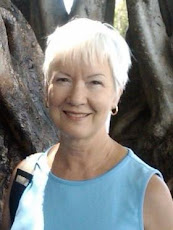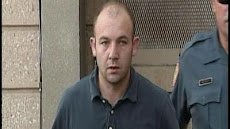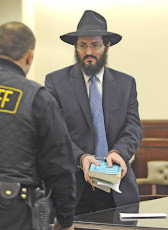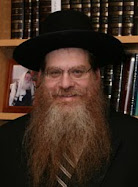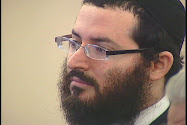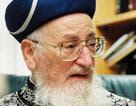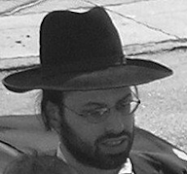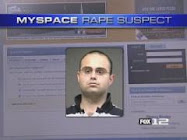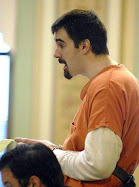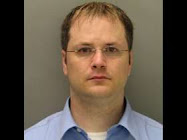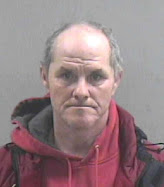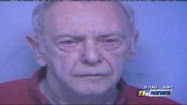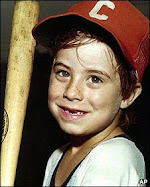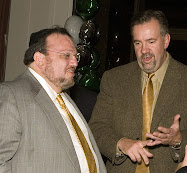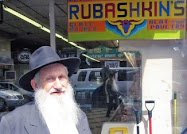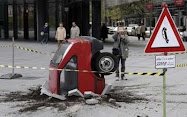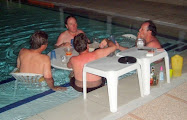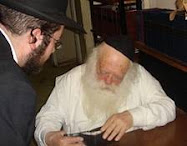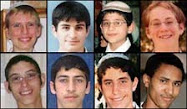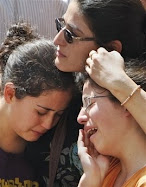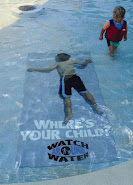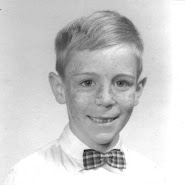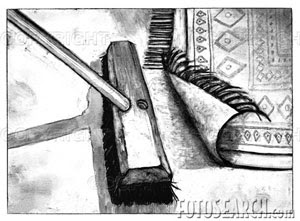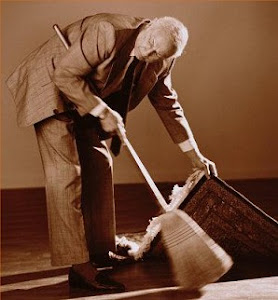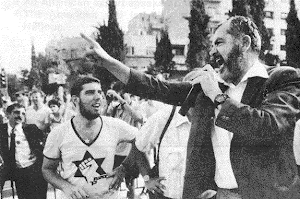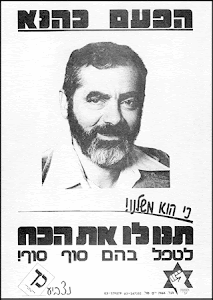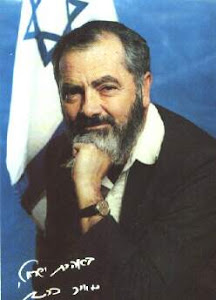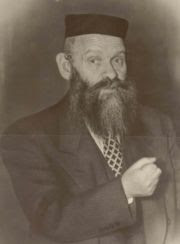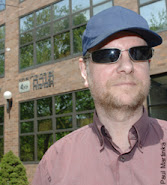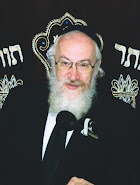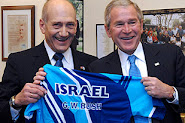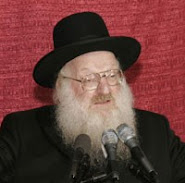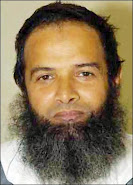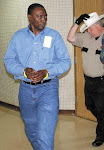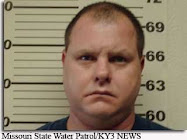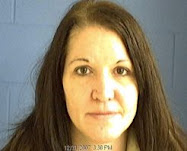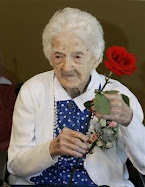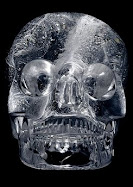

New York City Comptroller William C. Thompson, Jr. participated in the annual Kings County Memorial Day Parade on May 28, 2007. Pictured (l to r) are: Thompson and Brooklyn District Attorney Charles Hynes. Photo Credit: Marla Maritzer
http://www.columbiajournalist.org/rw1_freedman/2005/article.asp?subj=city&course=rw1_freedman&id=789#
CourtsCritics Question Contributions to Brooklyn DA’s Campaign Fund
By Jeneen Interlandi | ||||
| On a warm Friday evening in April of 2001, Isaac Chehebar was winding down from what had been a very typical day for him. He had just returned from visiting his grandmother, as he did every Friday before sundown and the Jewish Sabbath, when he ran into Abraham Feldman, a friend from the Gravesend neighborhood in southern Brooklyn, where Chehebar lived with his parents and siblings. Feldman had been driving around in his father’s 2000 Porsche Carrera, and he invited Chehebar to take it for a spin. Moments later, onlookers and other motorists would witness the 20 year old racing through the quiet neighborhood’s streets, at speeds ranging from 50 to 65 miles per hour. “I thought I was so cool with that car,” Chehebar later recalled, “that I could drive any way I wanted to – in and out of lanes.” Ocean Parkway has a speed limit of 30 miles per hour, partly because the median separating the main artery from the adjacent service road doubles as a neighborhood park. On pleasant days it fills up with pedestrians, mostly area residents making their way to and from the nearby shopping district. Chehebar’s joy-ride included at least two laps up and down this parkway, where people were sure to notice him driving the silver sportscar. It was on the second lap, after Chehebar had made a U-turn and was driving south, that Rima Shetman noticed him. The light at the intersection of Ocean Parkway and Avenue X had turned red, and she was waiting to cross the street with her husband Aleksandr and daughters Inna and Svetlana. “Look at this guy,” she said, as Chehebar approached the red light. It was the last thing 15-year-old Inna and her 10-year-old sister Svetlana would hear their mother say. Chehebar had been weaving in and out of each lane to keep the Porsche moving through the mildly congested traffic. When he reached the intersection where Rima Shetman stood with her family, he was traveling more than 50 miles per hour, according to the motorists he passed, and there were no openings ahead of him. To avoid a car that had the right-of-way and was clearing the intersection from the opposite direction, he cut the wheel hard to the right, losing control of the Porsche, sliding into the median and striking Inna, Svetlana and Rima Shetman. Aleksandr Shetman ran after the Porsche, screaming, as it carried his family several feet before coming to a stop against a park bench and a tree. The force of the impact killed Inna Shetman instantly; her sister Svetlana died hours later at Coney Island Hospital. Their mother, Rima Shetman, sustained major trauma to her head and torso along with multiple fractures in her arms and paralysis of her right leg. She would survive only after several tenuous months at Lutheran Medical Center. When the car finally came to a stop, Chehebar stepped out, over the body of Inna Shetman. He and Feldman had escaped with cuts and bruises. On May 25, 2001, a grand jury at New York State Supreme Court in Brooklyn indicted Chehebar on 11 counts, including two each of second-degree manslaughter and criminally negligent homicide. Although a conviction on these charges would have been enough to warrant several years behind bars, Brooklyn District Attorney Charles Hynes arranged a plea bargain with Chehebar that spared him a lengthy prison sentence. On Feb. 26, 2002 Chehebar pleaded guilty to both counts of criminally negligent homicide in exchange for which Hynes dropped the remaining nine charges and sought a six-month sentence as opposed to a six-year sentence. Chehebar ultimately served four months on Rikers’ Island, from March to July of 2002, followed by two years of house arrest. He was also sentenced to 1,200 hours of community service and prohibited from driving for five years. In the years since Isaac’s plea bargain, nearly $80,000 has flowed from friends, neighbors and business associates of the Chehebar family to Hynes’s campaign coffers. In recent months, the plea bargain and subsequent donations have come under scrutiny by Hynes’s opponents, including State Sen. John Sampson and former Assistant District Attorney Arnold Kriss, both of whom attempted to unseat him during last September’s Democratic primary. In response to the allegations of misconduct, Hynes has pointed out that the victims’ families, including Aleksandr Shetman who lost his only children, endorsed this deal. Between 2001 and 2005 more than 30 members of Sephardic Bikur Holim, the Brooklyn synagogue where the Chehebar family worships, contributed a total of nearly $80,000 to the Hynes campaign, as shown by comparing Hynes’s campaign-finance disclosures to the Sephardic Bikur Holim web site. The Chehebar family owns the well-known Rainbow Apparel shops based in Brooklyn and founded the Accessory Network Group, which does approximately $160 million in business annually according to Brandweek, an advertising-industry magazine that profiled the company. The family of MartinStein, vice president of the Accessory Network Group, gave $6,100. Weeplay Kids, a children’s clothing store owned by Alan Maleh, a fellow Sephardic Bikur member, contributed $10,100. The Chera family, also Sephardic Bikur members, donated $11,000 to Hynes. Sampson has called these donations “blood money,” adding, “It tells people that if you have money, you don’t have to face justice.” The allegations of impropriety come at a difficult time for the embattled district attorney, who has fended off two strenuous challenges to his incumbency in the years since he stuck a deal with Chehebar. In 2001, Sandra Roper, a little-known civil rights lawyer, won 37 percent of the vote, mounting the first credible challenge to Hynes’s decade-long tenure. Last year, State Sen. John Sampson won the same percentage, in a race pitting Hynes against three opponents. These near-misses were no small feat for Hynes’s challengers; to date, no incumbent district attorney in any of the five boroughs’ history has ever been defeated for reelection. Moreover, Hynes is a well-known figure in Brooklyn politics, having garnered celebrity status and wide respect in 1986 as the special prosecutor in the well-publicized Howard Beach racial murder trial. Although Hynes and Maureen McCormick, the assistant district attorney who prosecuted this case both declined to be interviewed for this article, they have pointed out that the victims of the Chehebar accident supported the offer of a lighter sentence, agreeing that Chehebar deserved a “second chance,” according to court records. “Mr. Hynes feels very strongly that the victims of this crime should be heard in terms of whether or not they accept the disposition,” McCormick said at Chehebar’s plea hearing. She then asked Aleksandr Shetman, “Is it your intention, by accepting this plea offer, to extend to the defendant a second chance to get his life together and do some good out of this horrible incident?” Although Shetman answered yes, he later told the New York Post that he was disappointed and had only agreed because he worried that Chehebar would not be convicted in a trial. A review of press releases from the Brooklyn District Attorney’s office shows that six cases involving vehicular deaths were prosecuted by Hynes from 2000 to 2005. One of those cases resulted in “the longest sentence in state history for a sober driver who killed someone,” according to a press release from Hynes’s office. Hynes and McCormick won a second-degree murder conviction against Jon Paul Lazartes after his Mercedes crashed into another car, crushing its two passengers to death. “Let this be a clear message to these high-octane terrorists on the Belt Parkway and everywhere in Brooklyn, that you will be penalized in a similar fashion for this kind of behind-the-wheel-bedlam,” Hynes said of the 20-year sentence Lazartes received. Like Chehebar, Lazartes was 20 at the time of the accident and 21 at the time of sentencing. At the same time, almost everyone involved in the criminal justice system has an incentive to plea bargain. Because plea-bargained cases move faster – taking weeks to months instead of years – judges are able to better handle their over-booked courts. For prosecutors, plea bargains guarantee a conviction and wrapping up cases quickly conserves resources, which are often scarce. New York City district attorneys suffered budget cuts of 12 percent between 2001 and 2004, according to a report issued by the Citizens’ Union. Hynes’s office lost roughly 39 percent of its assistant district attorneys in the same time period. According to both Harvard and Yale Law Reviews, more than 90 percent of convictions in the U.S. come from pleas, many of which are negotiated. “Plea bargains are generally encouraged by the court system, and have become something of a necessity due to over burdened criminal court calendars and over-crowded jails,” according to Find Law, a web site that provides legal advice to non-professionals . On the day of his sentencing, Chehebar addressed the court. “I know no matter what I say to the family it will never bring back his daughters,” he said, “But this past year has been hell for me.” He also expressed appreciation for the leniency and asked Aleksandr Shetman for forgiveness, saying that he was “filled with guilt.” After four months on Riker’s Island , Chehebar returned home and went back to work for his family’s company. In July of 2003, he was caught trying to obtain a driver’s license. As punishment, Justice Anne Feldman of Kings County State Supreme Court, who oversaw his case, revoked his permission to spend weekends at his family’s shore house in New Jersey. In August of the same year, Chehebar was found guilty of cheating on his community service. Despite warnings from both McCormick and Feldman that any violations would result in jail time, he was sentenced to additional community service. In an interview from 2004, included with the court transcripts, Chehebar sought to portray himself, not as a criminal, but as another victim in the accident that killed Inna and Svetlana. “I felt I did not deserve the sentence I received,” he said. “I come from a good family with good values.” | | |||
|
The candidates challenging Charles J. Hynes for Brooklyn district attorney called yesterday for an investigation into some campaign contributions collected by him, based on reports that the district attorney's re-election organization accepted money from people connected to the family of a driver who received a plea-bargain sentence in a fatal 2001 car crash.
The contributions, which were reported yesterday in The New York Post, amounted to about $80,000. They came from people connected to the family of Isaac Chehebar, the driver of a Porsche that struck a group of people and killed Inna Shetman, 15, and her sister, Svetlana, 10, who were walking home on a median along Ocean Parkway in Brooklyn in April 2001. Mr. Chehebar, 21 at the time, agreed to a plea arrangement for criminally negligent homicide under which he would serve six months in jail. He was released after serving four months.
Mr. Chehebar's family owns several clothing stores in Brooklyn.
"This is the height of a conflict, if ever there were one," said State Senator John Sampson, one of Mr. Hynes's challengers in next Tuesday's Democratic primary. "There is a need for this matter to be looked at by higher authorities. And it's further evidence that there needs to be a cleanup of all the corrupt mess in the borough of Brooklyn."
Another candidate, Mark G. Peters, said that the matter should be looked into by either the state attorney general or the United States attorney's office.
"I'm appalled that Joe Hynes would compromise the integrity of the office," said Mr. Peters, a former senior official in the state attorney general's office.
The third challenger to Mr. Hynes in the primary, Arnold Kriss, also called for an investigation.
Mr. Hynes issued a statement yesterday saying that it was allegations made by Mr. Kriss that led to the news reports. The district attorney defended his arrangements with Mr. Chehebar and said that he had done nothing unethical or illegal.
"Arnold Kriss's suggestion that this money was given to my campaign to pay me back for the plea, a charge that suggests that I am guilty of criminal conduct, is despicable and a vile act of desperation," Mr. Hynes said in the statement.
He added, "I personally approved the plea agreement only after the father of the two children killed as a result of Chehebar's negligence met with me and urged that the defendant not be sent to state prison because, he said, 'It will not bring back my two daughters.' "
Mr. Hynes said that the plea was approved by a State Supreme Court justice and included two years of house arrest and 1,200 hours of community service.
==================================================================
http://www.nydailynews.com/archives/news/2001/04/24/2001-04-24__they_re_putting_soil_on_my_.html
'THEY'RE PUTTING SOIL ON MY CHILDREN' Dad's cry at burial of car victims
Tuesday, April 24th 2001, 2:21AM
A brokenhearted father's sobs and tears resounded in a chapel and cemetery in Brooklyn yesterday as he buried his two daughters, who were mowed down by an out-of-control car Friday night.
"They're putting soil on my children," Aleksandr Shetman cried in Russian as his daughters Inna, 15, and Svetlana, 10, were buried on a cloudless morning at Washington Cemetery, Midwood.
Weak with grief, Shetman leaned on a friend for support as he and 100 other mourners said goodbye to the young girls they described as smart, motivated and angelic.
Shetman's wife, Rima, injured in the Gravesend accident, remained in a coma at Lutheran Medical Center in Brooklyn.
Yesterday's funeral began a week in which seven Brooklynites will be remembered not only for how they lived but for the tragic accidents in which they died. Mourners will gather in Fort Greene on Thursday to attend services for five family members killed when their minivan slammed into a city bus in Crown Heights.
Rabbi Menachim Zarkh, who led services for the ambitious girls - Inna hoped to become a doctor and Svetlana wanted to be a teacher - said afterward that Shetman was in shock. "He's trying to wake up," Zarkh said.
Speaking in both Russian and English, he urged the standing-room-only crowd to honor Inna and Svetlana's giving and caring manner.
Elaine Ingino, Svetlana's fifth-grade teacher, described her pupil as a brilliant and voracious reader who "would have gone very far." Svetlana also acted as a school mediator, helping classmates resolve problems.
After the girls were buried side by side, a dozen of Inna's classmates filed past and placed rocks on the gravesite.
"It was a way to show respect," said Sharai Lewis, 15. "[Inna] was one of the sweetest people. She didn't have a mean bone in her body. She was gorgeous."
The family of Anthony Abbate Jr., 15, who suffered a broken leg in the Gravesend accident, filed a $25 million lawsuit in Brooklyn Supreme Court against Issac Chehebar, the 20-year-old driver of the Porsche that jumped a curb on Ocean Parkway near Avenue X and plowed into the helpless pedestrians.
"My son had an angel on his shoulder," said Abbate's mother, Jacqueline. "It's a horrendous thing that happened. [Chehebar] took two lives just because he didn't want to wait for a light."
Stephen Flamhaft, Chehebar's attorney, said his client was "very sorry for what happened."
Chehebar has asked his rabbi to apologize on his behalf to the victim's families, Flamhaft said.





















































